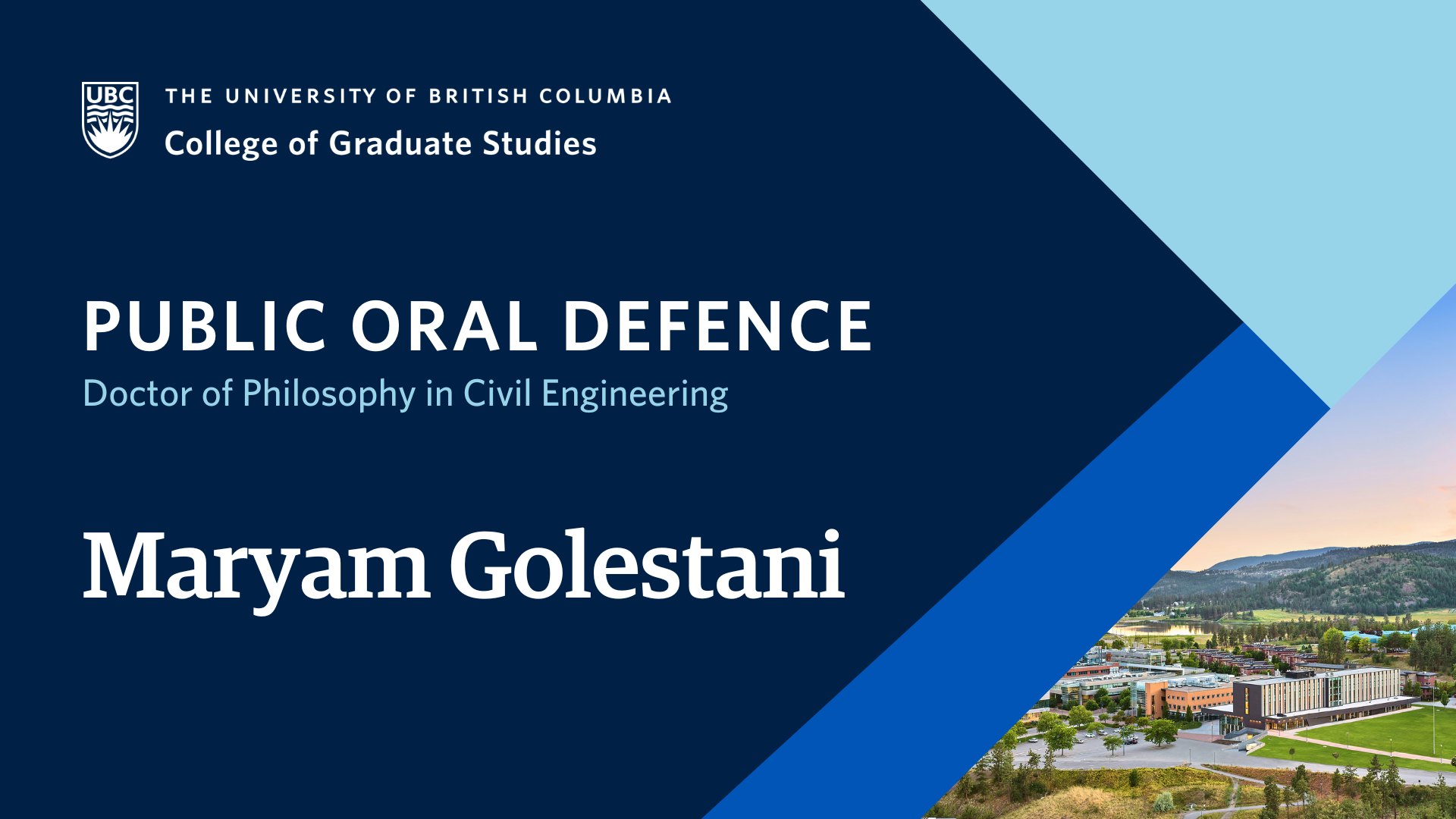
- This event has passed.
Dissertation Defence: A Performance-Based Loading Protocol: Generated Sequential Ground Motion
November 3, 2023 at 8:30 am - 12:30 pm

Maryam Golestani, supervised by Dr. Shahria Alam, will defend their dissertation titled “A Performance-Based Loading Protocol: Generated Sequential Ground Motion” in partial fulfillment of the requirements for the degree of Doctor of Philosophy in Civil Engineering.
An abstract for Maryam Golestani’s dissertation is included below.
Examinations are open to all members of the campus community as well as the general public. Please email shahria.alam@ubc.ca to receive the Zoom link for this exam.
ABSTRACT
This doctoral dissertation aims to propose and develop a realistic performance-based seismic loading protocol called the Generated Sequential Ground Motion (GSGM). A comprehensive literature review reveals a gap in establishing a link between performance-based seismic design and experimental testing of structures, proving the need for a new loading protocol. GSGM is a ground motion fabricated from segments of real recorded ground motions that enables the introduction of performance-based seismic assessment and design to experimental testing for setups such as shaking table and Pseudo-dynamic testing. Additionally, it can potentially decrease the quantity of nonlinear time history analyses needed for performance-based seismic design to just one analysis. The protocol optimizes the behavioural information output of an experimental test or numerical analysis by incorporating dynamic demands corresponding to design limit states with different probabilities of exceedance (i.e., 10%, 5%, and 2% in 50 years) in a single record. In addition, since the segments are matched to specific target spectra, the number of ground motions required to estimate the mean response is reduced.
A step-by-step procedure and a MATLAB algorithm are developed for producing GSGMs. The MATLAB algorithm is utilized to generate four different GSGMs for a specific case study bridge pier and earthquake scenario. The ability of GSGMs as an alternative input to code-compliant ground motion suites in replicating suite properties and predicting structural behaviour is assessed. Thus, four code-compliant suites consisting of 11 ground motions and two suites of 28 and 100 ground motions as more robust estimations of the actual response are selected. This study suggests that the GSGM can replicate structural responses and damages in accordance with current code procedures.
The GSGM is a ground motion applicable exclusively to explicit dynamic testing setups like shake tables and Pseudo-dynamic (PsD) testing. However, such methods require equipment and software that may not be accessible in all laboratories. Conversely, the quasi-static testing setup is a simpler arrangement readily available in most laboratories. Hence, this study attempts to create the displacement loading protocol version of the GSGM. For this purpose, a dynamic testing method called the Dynamic Displacement Testing (DDT) method was introduced and investigated through sensitivity analyses and Monte Carlo simulation. As the DDT method introduced significant errors in response, a modified version of this method, along with a method based on cyclic loading protocols, was proposed for generating the displacement-based version of the GSGM.